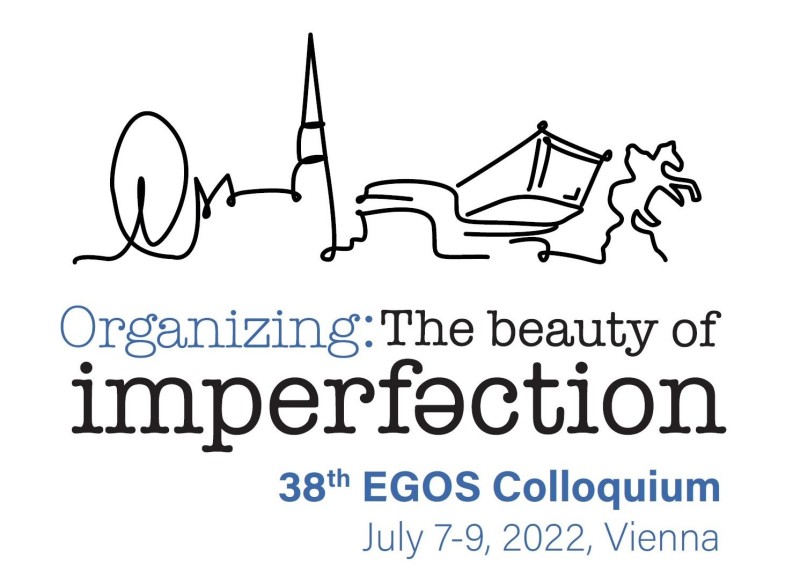Sub-theme 17: [hybrid] Careers: Failure and Success in Changed Times
Call for Papers
Hybrid sub-theme!
For further information on hybrid sub-themes, please
click here.
Careers are “objective patterns of
roles or offices” as well as “the subjective experience of the individual […] examined over an extended period of time” (Gunz
& Mayrhofer, 2018: 26). Accordingly, people experience career success and failure in both objective and subjective ways:
through “observable, measurable, and verifiable accomplishments” such as salary or rank, or through the “psychological experience
of success” such as job satisfaction (Hall et al., 2018: 141). Individual and collective career actors – individuals, groups,
organizations, or nation states (Gunz & Mayrhofer, 2018) – may jointly influence career outcomes. This multifaceted interplay
of structure and agency determines both objective and subjective career success and failure (Schneidhofer et al., 2020).
The dynamics among structure, agency, objective and subjective career success and failure have become even more
complex in recent years (Barley et al., 2017). Structural forces such as job impermanence, or workforce changes resulting
from globalization and technological advancements have both negative and positive career implications (Callanan et al., 2020).
On the one hand, career failure, both objective and subjective, is more probable, in that layoffs (i.e., loss of paychecks)
are more likely and technological innovations such as hiring algorithms that determine access to jobs benefit “WEIRD” (Western,
educated, industrialized, rich, and democratic) job seekers (Heinrich et al., 2010), but disadvantage the marginalized (e.g.,
women, ethnic and racial minorities, LGBT+ workers). On the other hand, given the emergence of new organizing forms, novel
employment structures and new occupational fields, organizations control careers to a lesser extent than before. People may
find more job opportunities and likely experience more subjective success. In changed times, as the dependence from a single
career decision declines, career crafting becomes more critical and important (De Vos et al., 2020).
Changed
times also affect individuals’ career-related preferences and decisions. Career-related attitudes change with the increasing
representation of women and minorities in the labor force. Changing attitudes towards the work-/non-work balance, or parental
decisions concerning childcare affect both career failure and success (Mayrhofer et al., 2008). The work-home relation (Greenhaus
& Powell, 2014) influences the sustainability of careers, in that occupational choices or job changes depend on issues
like spouse supportiveness.
Against this backdrop we invite papers which address, but are not restricted
to, the following themes and issues related to career failure and success:
The interplay of structure and agency, or micro and macro factors
The importance of time for careers
Intersectional perspectives on careers
The emergence of new careers, alternative career paths or work arrangements, occupations, or occupational fields, and careers in the gig economy
The careers of the marginalized
The work-home perspective on careers
The impact of technological change on careers
(Un-)Sustainable careers
Career shocks
Employment breaks as the “new normal”
Organizational and career entry and exit
Global careers: careers across geographical and cultural contexts
Network perspectives of careers
Papers can be conceptual, empirical, methodological, or combine any of these angles. We welcome submissions from scholars
from a variety of areas including career studies, HRM, industrial relations, organizational behaviour, and organization studies.
References
- Barley, S.R., Bechky, B.A., & Milliken, F.J. (2017): “The changing nature of work: careers, identities, and work lives in the 21st century.” Academy of Management Discoveries, 3 (2), 1–12.
- Callanan, G.A., Peiperl, M.A., & Arthur, M.B. (2020): “The past, present and future of 21st-century careers.” In: H. Gunz, M. Lazarova, & W. Mayrhofer (eds.): The Routledge Companion to Career Studies. London: Routledge, 410–420.
- De Vos, A., Akkermanns, J., & van der Heijden, B. (2020): “From occupational choice to career crafting.” In: H. Gunz, M. Lazarova, & W. Mayrhofer (eds.): The Routledge Companion to Career Studies. London: Routledge, 128-142.
- Greenhaus, J.H., & Powell, G.N. (2014): “The contemporary career: A work-home perspective.” Annual Review of Organizational Psychology and Organizational Behavior, 1 (1), 361–388.
- Gunz, H.P., & Mayrhofer, W. (2018): Rethinking Career Studies: Facilitating Conversation Across Boundaries with the Social Chronology Framework. Cambridge: Cambridge University Press.
- Hall, D.T., Yip, J., & Doiron, K. (2018): “Protean careers at work: Self-direction and values orientation in psychological success.” Annual Review of Organizational Psychology and Organizational Behavior, 5 (1), 129–156.
- Heinrich, J., Heine, S.J., & Norenzayan, A. (2010): “Most people are not WEIRD.” Nature, 466 (7302), 29.
- Mayrhofer, W., Meyer, M., Schiffinger, M., & Schmidt, A. (2008): “The influence of family responsibilities, career fields and gender on career success: An empirical study.” Journal of Managerial Psychology, 23 (3), 292–323.
- Schneidhofer, T.M., Hofbauer, J., & Tatli, A. (2020): “On the agency/structure debate in careers research: a bridge over troubled water.” In: H.P. Gunz, M. Lazarova, & W. Mayrhofer (eds.): Routledge Companion to Career Studies. New York: Routledge, 59–74.


